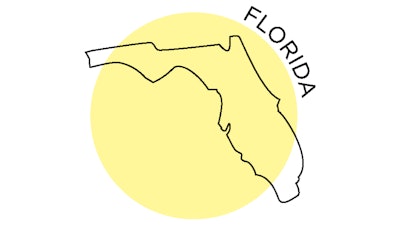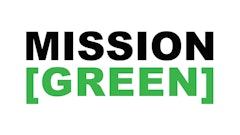
Cannabis operators in Florida’s still growing medical market will soon be rubbing elbows with new competition, as state regulators are currently reviewing applications for 22 additional licenses.
The five-day application window for Medical Marijuana Treatment Center (MMTC) licensure closed April 28, marking the first formal application process since voters passed Amendment 2 for a more comprehensive medical program in the November 2016 election. While Florida had an application process in 2015 for the original five high-CBD, low-THC licenses, the other 17 license holders operating in today’s market gained their permits through lawsuits.
And while some may have expected this 2023 application process to be overly competitive for possible entrance into a market that has no canopy or dispensary caps for licensed businesses and more than 818,000 active patients—not to mention the possibility of a 2024 adult-use ballot measure —a steep $146,000 nonrefundable fee kept many would-be applicants from entering, says Zachary Kobrin, partner at Florida-based Akerman LLP.
The Florida Office of Medical Marijuana Use (OMMU), which operates under the Department of Health (DOH), did not respond to Cannabis Business Times’ public records request for the exact number of applications submitted. According to an article published by Tampa-based The Free Press, 74 applied.
Kobrin previously worked as vice president and general counsel at Trulieve, the largest MMTC in the state with 125 dispensaries as of May 19. Before that, he worked as general counsel and chief compliance officer for Cansortium Holdings (now Fluent), which, as Knox Medical, was among the original high-CBD, low-THC licensees.
“We expected hundreds and hundreds of applicants,” Kobrin says about his assumption before the $146,000 application price tag announcement. “I think a lot of people stopped and went, ‘I could take the $10, $20 million of capital that my investors have given me and go get licenses in three other states, or I can try and grind it out in Florida.’”
In addition, license renewal fees in Florida are calculated based on the state’s cost to regulate the industry and the number of licensees in the market. This fee, due every two years, is currently set at more than $1.2 million per renewal through the end of 2024, according to the DOH. If the state’s costs remain the same and more licenses enter the market, then the fee would decrease.

Kobrin says he expects state regulators to take at least six months to effectively score the 2023 applicants and determine the winners. The real wild card is the timing between when OMMU officials announce their intent to award the licenses and when the licenses are actually issued—a period that often gets delayed by litigation in limited-license markets.
But the rewards could pay out big for the awardees.
“Florida has no cap on canopy size, so you can grow as much as you want,” Kobrin says. “And they have no cap on dispensaries, so you can have as many retail locations [as you want], which is diametrically different than almost any other state.”
In Florida’s current program, 22 MMTCs operate 566 dispensaries as of May 19. And this market sector continues to grow, notably with 113 dispensary openings in 2022 and another 57 so far in 2023.
Businesses choosing to expand their retail footprint is partially attributed to Florida’s growing patient base, which now represents 3.7% of the state population. Florida had a net increase of more than 122,000 patients in 2022 and is on pace to add another roughly 100,000 patients in 2023.
The state’s growing demand adds another layer to business strategies. Licensed retailers sold roughly 267,000 pounds of cannabis flower in 2022, representing a 21% increase versus 2021. And the overall flower market is on pace to grow another 21% in 2023, based on OMMU weekly updates.

By comparison, Michigan, which has the nation’s second-largest cannabis economy by sales volume, after California, sold roughly 523,000 pounds of cannabis flower to adult-use consumers in 2022, nearly double Florida’s medical-only sales.
But is it too late for new entrants to compete with the likes of Trulieve (125 stores), Verano (66 stores), Curaleaf (60 stores), Ayr Wellness (60 stores) and other MSOs in Florida?
“What I tell most people is when you’re coming into Florida, you can’t compete with Trulieve,” Kobrin says. “You’ve got to compete with everyone else below Trulieve, and that’s how you tick into the market share.”
During the first 16 weeks of 2023, Trulieve owned 23% of the state’s storefronts but accounted for roughly 41% of the state’s retail flower sales. While Florida’s average storefront sold roughly 180 ounces per week during that period, Trulieve’s stores sold 319 ounces per week per dispensary, on average.
While no other MMTC is competing head-to-head with Trulieve on overall flower sales in 2023, two smaller operators outperformed Trulieve on a per-store basis: Jungle Boys sold an average of 401 ounces per week at its seven dispensaries, while The Flowery sold an average of 365 ounces per week at its four dispensaries, according to OMMU weekly updates.
As more operators strengthen their retail positions in Florida’s capital-intensive market, it’s inevitable that the state’s flower share will further diversify among licensed businesses. In 2020, Trulieve’s sales accounted for roughly 53% of the retail flower market. But even as the company increased its sales volume in subsequent years, that market share continued to shrink amid more players entering the space.

























